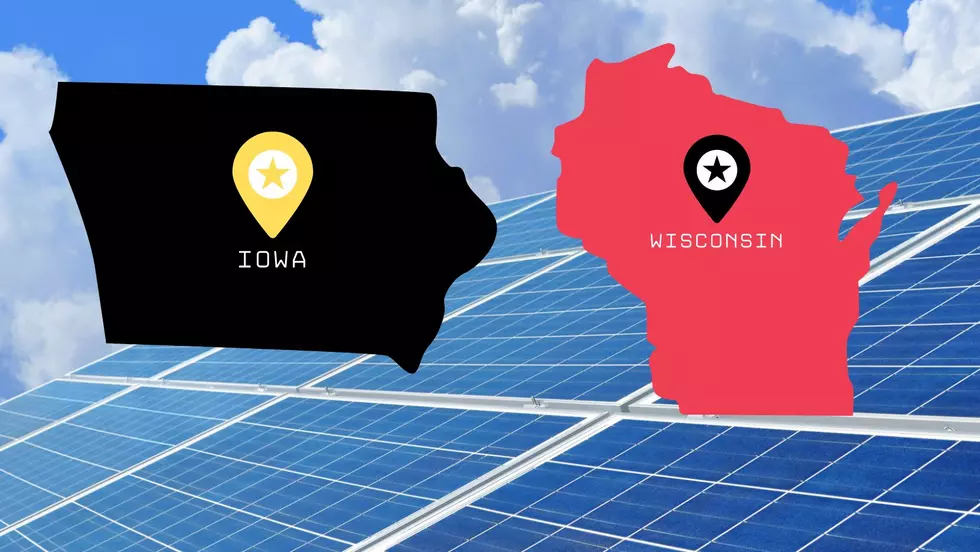
Battle For Solar; Wisconsin Looks To Iowa In Current Court Case
Wisconsin solar advocates are asking regulators to take a look at Iowa as an example while they consider the latest issues over solar arrays and projects, and how they are financed in the state.
The Wisconsin Public Service Commission is considering two petitions which seek authorization for third-party owned solar array projects. In this current situation the entity that owns the solar array is different from the property owner that will actually use the electricity. The very same financing model was used in these developments, it's what makes solar viable for many cities, schools, and nonprofits looking to cut costs and stay operational. This is mainly because residential customers usually can’t afford the upfront cost of a full solar array. And so far, it has also been the culprit of long legal battles between champions of solar power and the Wisconsin utility companies that see it as a threat to business.
Did you know this exact same thing happened in Iowa? The outcome was a 2014 Iowa Supreme Court ruling that affirmed a third-party can own a solar array and sell the power or make lease payments to the owner of the property, without becoming a public utility. Utility companies have feared this could lead to deregulation and safety practices, as well as hurt their bottom dollar. 8 years on in Iowa and those fears have never come to fruition. There’s been no deregulation or negative impacts seen in Iowa.
In Dubuque, some of us know the story well. The Iowa court decision resulted from Dubuque developer Eagle Point. Their lawsuit challenged Alliant Energy’s refusal to interconnect a third party owned array to the grid. Supreme Court documents explain:
“The district court found that although it was conceivable under some circumstances that an entity that was not a public utility could nevertheless be an electric utility under the applicable statutory provisions, Eagle Point's proposed arrangement with the city did not make it an electric utility for purposes of the statutes. The IUB and intervenors MidAmerican Energy Company, Interstate Power, and Iowa Association of Electric Cooperatives, appealed. Eagle Point filed a cross-appeal challenging the reasoning, but not the result, of the district court's electric utility holding.”
And, the original decision was then affirmed after that statement, by the Iowa Supreme Court.

Eagle Point is also central to the standoff in Wisconsin, as utility company We Energies has refused to interconnect solar arrays/panels co-owned by Eagle Point and the city of Milwaukee.
According to a report from the Energy News Network, Vote Solar has asked the Wisconsin Public Service Commission to allow a Stevens Point family to enter a third-party ownership arrangement for an 8.6-kilowatt system. The court petition states “the energy savings would help them pay for college for their two teenage children, and a third-party structure is necessary to avoid upfront costs.” Currently the family is served by the Wisconsin Public Service Corporation, a subsidiary of utility company WEPCO (Wisconsin Electric Power Company).
In addition, the Midwest Renewable Energy Association petition asks the commission to clarify that third-party solar is legal. Documents state it would be too expensive, and troublesome, for an individual customer that wants the arrangement to file their own petition. Public hearings for both proceedings were held yesterday (11/2). Public comments are being accepted through November 9th.


